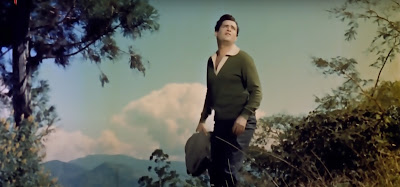As I made the bed this morning, loath to waste even five minutes to a mundane job, I played on YouTube the superlative ‘Aawaz deke humein tum bulao’. Just under five minutes and it sucked me into a vortex of nostalgia.
Movies in India have morphed so much. There are grim, dreary, bleak reflections of society, there are political statements, social statements… always, always pontificating on something or the other; revealing the underbelly of something or the other, taking a stand on something or the other. In a sense, they have all become very masculine: hard, primarily concerned with the outside, with the larger picture; rather than feminine, which is soft, and more about the particular, the subjective and individual experience.
Are we never to see any particular stories about human beings anymore? Or for that matter even a genuine lip-sync song? Have we been embarrassed out of our natural and spontaneous musicals? It seems the only songs that are sung out are those performed on stage, or item songs. The rest are background scores. Am I wrong?
I don’t remember the plot of ‘Professor’ and don’t remember the context for this intensely romantic song set in Raga Shivaranjani. How inspired were Shankar-Jaikishan with this one… the faintly ominous large drum in the beginning, yielding space to the tabla and Lata Mangeshkar’s soaring voice… The song pulls you in, makes you wonder what is up with these two people…
How wonderful would it be if we could have such mellow, romantic stories made with all the wonderful filmmaking techniques and technology we have today!
***
I was discussing this with my sister the other day. How is it that OTT platforms, which have mushroomed in such large numbers, have not yet tapped into this wonderful bank of old classics in any language? Where are the Hitchcocks, the Gene Kelly musicals, the b/w favourites? The Shammi Kapoor hits, the Joy Mukherjee must-watches, the Best of Dev Anand, Dilip Kumar, Filmfare awardees of 4-5 decades ago? Where are the Telugu mythologicals and socials? I don’t know about the economics in connection with Hollywood fare, but surely Indian goldies must be low hanging fruit?
Maybe they'll get there eventually?







